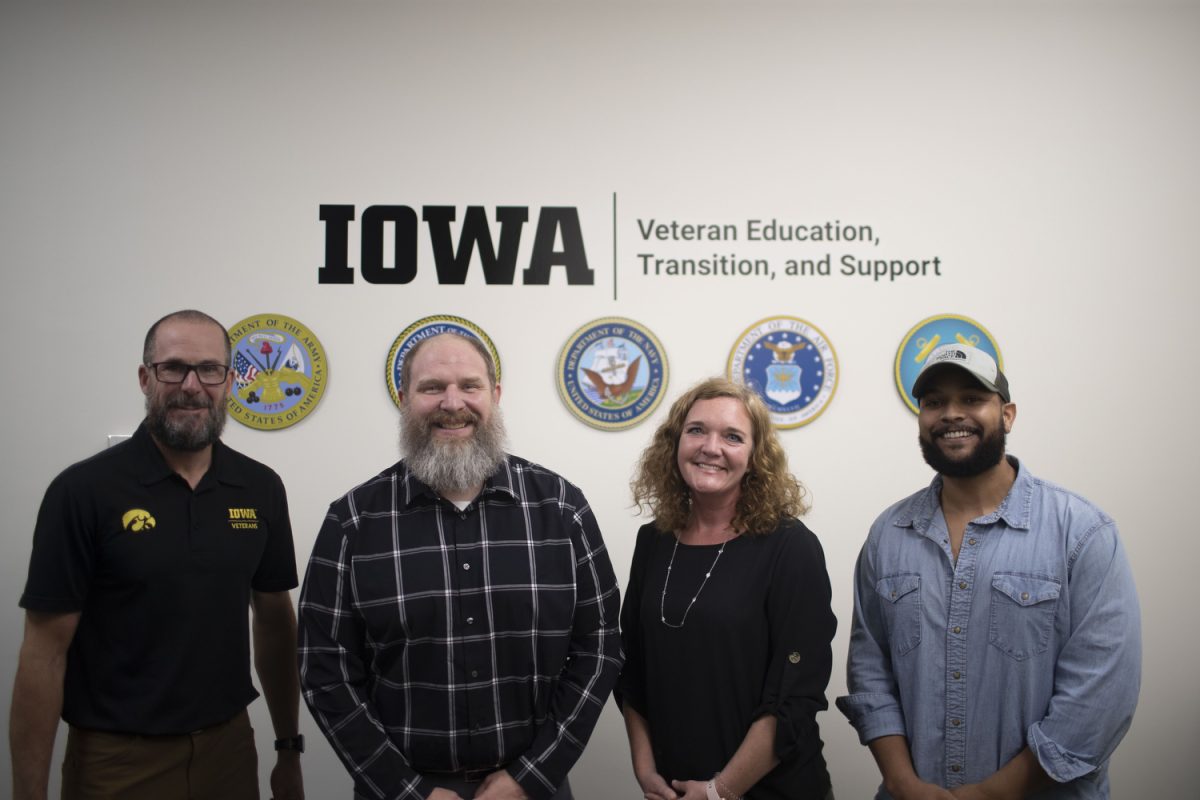After serving in the Army National Guard, earning his bachelor’s degree, and deploying to Iraq, Chuck Xander became a licensed mental health counselor in 2016 and has been serving the mental health community ever since.
Now, Xander provides mental health services to student veterans at the University of Iowa. The UI is the first Big Ten school to offer an embedded therapist for student veterans.
Xander has seen about 20 to 30 students requesting services this semester including ROTC members, veterans, National Guard Reserve dependents, and other active-duty military personnel.
Xander said he has seen requests range from test anxiety to post-traumatic stress or drug and alcohol abuse.
Xander said the outcome of therapy is to learn how to better process your own emotions and how to deal with previous or current events.
“It does take a while to process what is going on and the most effective tool that we can offer is support,” Xander said.
Xander said many of the student veterans he has seen aren’t traditional students either. Many of them are in their mid-20s, and a number are first-generation students.
Someone who is a first-generation student doesn’t have the resources that third or fourth-generation college students would have, Xander said, making this service helpful for student veterans in their transition.
Austin Smith, a second-year pre-nursing student at the university, shared his experience about how Xander has helped him in his transition to college.
“I graduated high school in 2015, and I was pretty much homeless. I had nowhere to go and I had already moved out of my parents’ house,” Smith said. “That’s when I decided to enlist.”
After enlisting in the Marine Corps and being deployed in Norway, Okinawa, and Afghanistan, Smith returned to Iowa in hopes of becoming a nurse.
Smith said Xander’s experience as a combat veteran working in mental health is a great opportunity for a lot of veterans who have seen combat and don’t have a lot of people to relate to.
Matthew Miller, co-director of student support services at Iowa Veteran, Education, Transition, and Support, also known as IVETS, said there are 2,400 military-connected students on the university’s campus of whom, about 600 of those are veterans.
“Having Chuck here makes it much easier for the students as they are able to connect with a counselor with similar experience and do not have to explain themselves or their experiences,” Miller said.
Miller said Pat and Mary Scanlan’s $15 million donation to the UI’s Scanlan School of Mental Health in summer 2022 helped jumpstart this new service to veteran students and their mental health.
Currently, IVETS has one embedded counselor, with four other embedded counselors spread out throughout campus in residence halls, the College of Law, the College of Dentistry, and athletics.
Miller said within the first hour of announcing the availability of its embedded counselor, two students had already scheduled appointments before classes even started.
“It is always a positive thing when students see a face they recognize and feel comfortable with. It allows them to connect on a different level,” Miller said.
Tara Lamb, director of academic resources, said having someone who has lived that life and has come from that military background has been incredibly resourceful.
RELATED: Dorms get embedded counselor
Lamb hopes to grow the program and create more ways for students to get involved with mental health resources, including more educational sessions for students to learn about stress management and how to process their feelings.
“Our main goal is to make sure that these students feel supported and feel as if they have a community here,” Lamb said.
Xander said letting go of the stigma behind mental health and seeking that help early on will result in better outcomes.
“We’re just honestly veterans that are helping one another out because we have all gone through or are going through the same issues at one point or another,” Smith said.



